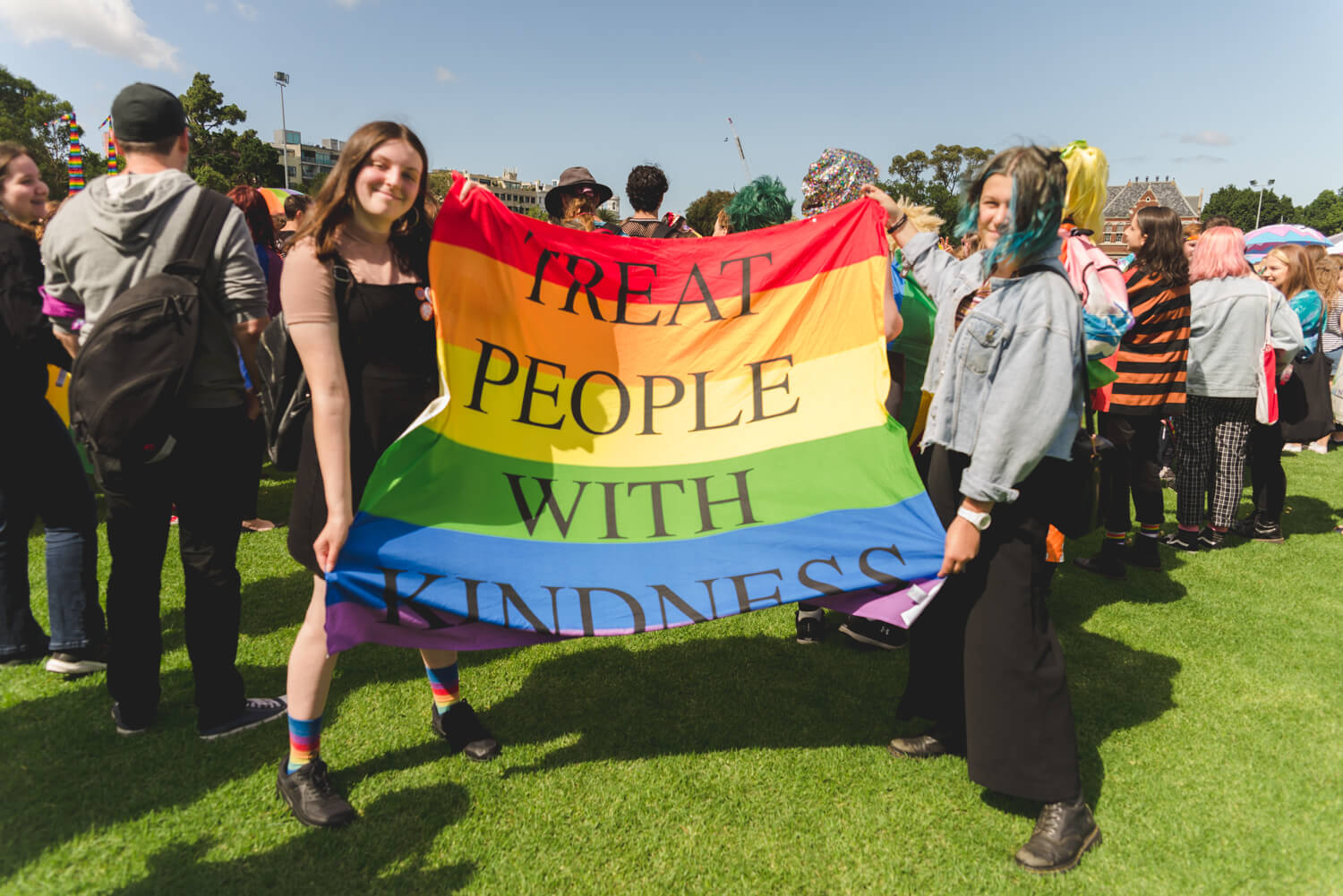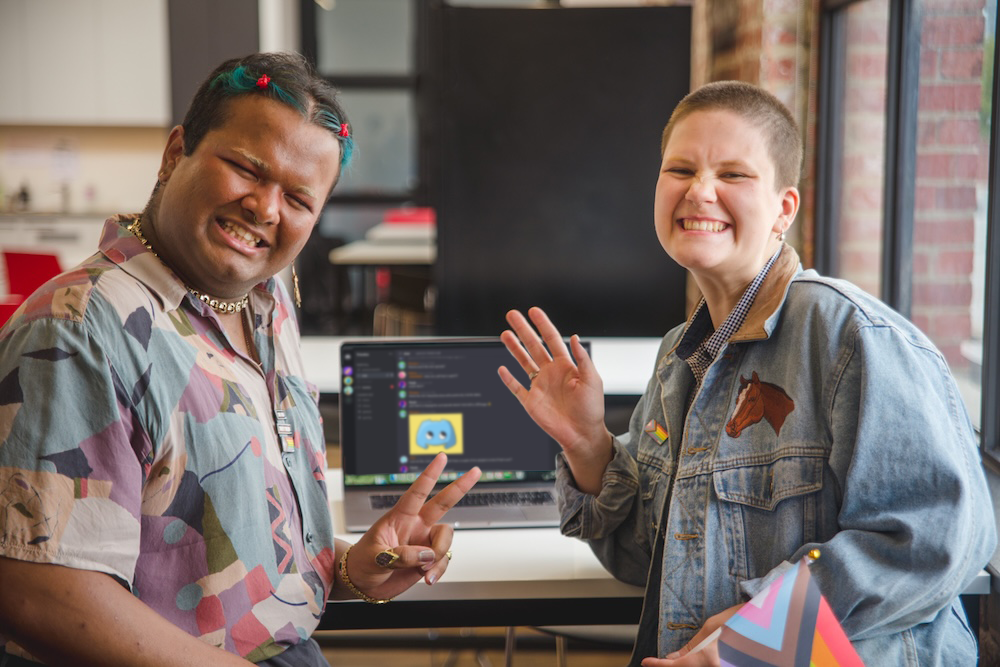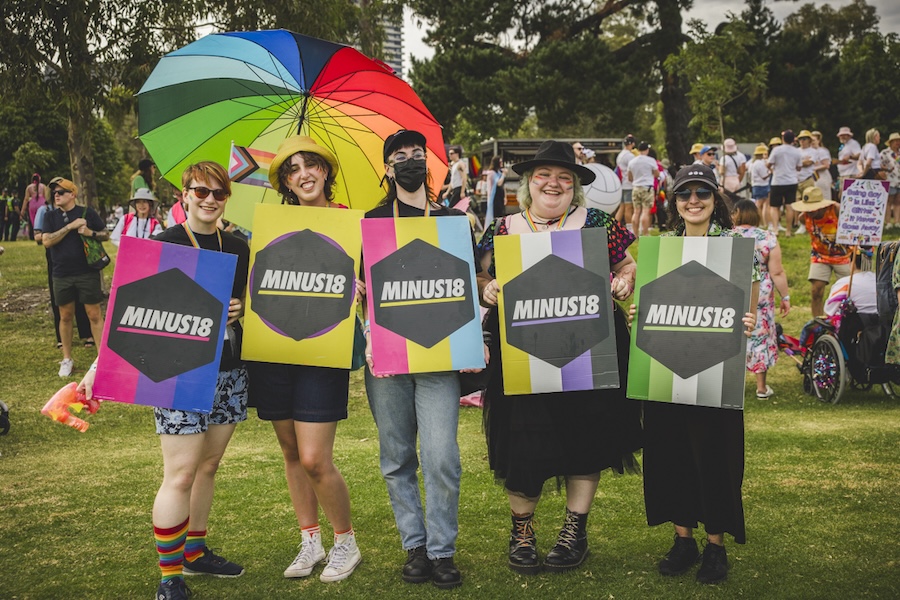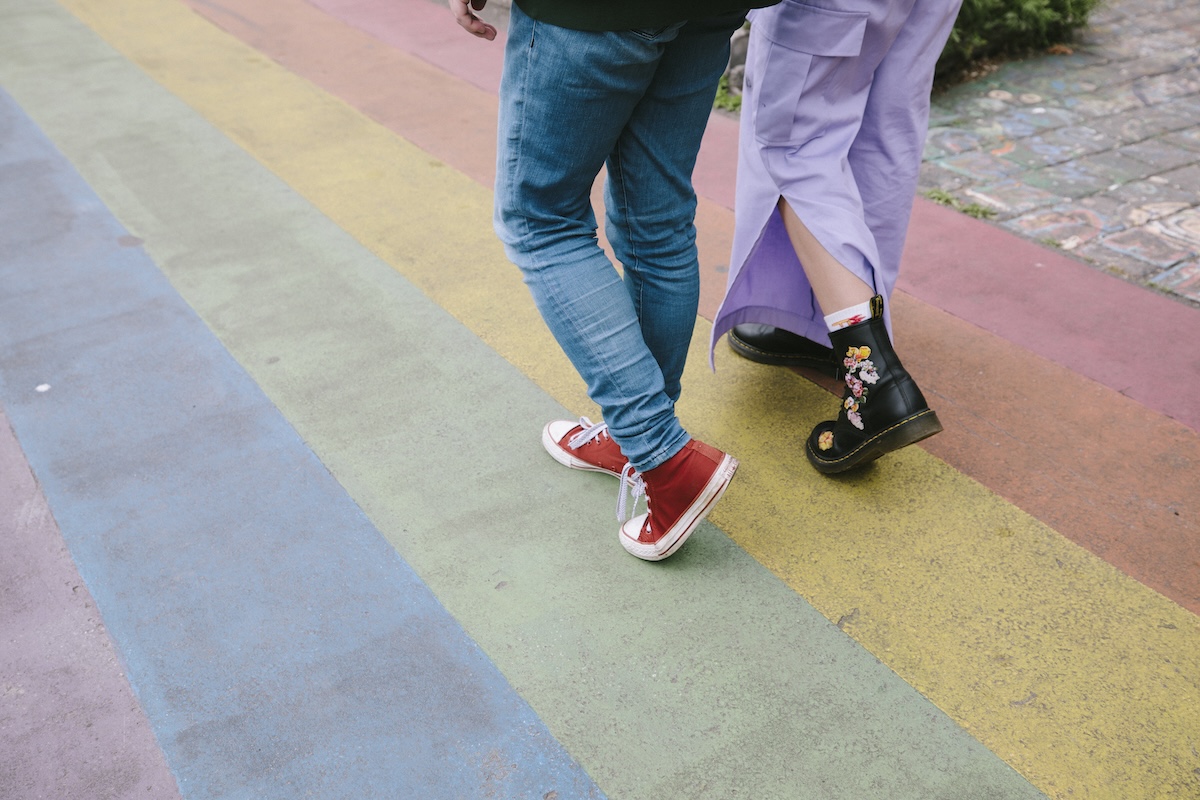
What should you talk about on IDAHOBIT?
April 04, 2019
May 17th is the International Day Against LGBTQIA+ Discrimination. Not only is it a day to stand in support of your LGBTIQ friends, family and colleague, but it is also a day of discussion to raise awareness and squash discrimination at school and at work.
Here are five things you could (and should!) discuss on IDAHOBIT to create a safe and inclusive environment for all.
Standing out against LGBTQIA+ discrimination
So, what does IDAHOBIT even mean? It's the International Day Against Homophobia, Biphobia, Interphobia and Transphobia. Overall, it's a day against LGBTQIA+ discrimination, but if we look closer at the letters that make up "IDAHOBIT", it actually touches on a variety of identities and experiences.
Use the day to challenge homophobia – the unfortunately negative attitudes and feelings that some people still have toward people attracted to the same sex.
This doesn't just include abusive words, but phrases that include ‘that’s so gay,’ which culturally can still have an impact. On IDAHOBIT, it is the perfect time to discuss how to ensure your community avoids homophobic language, such as using non-homophobic phrases instead.
Conversation starters:
- What are ways we can "call people in" if they make a crappy joke?
- What are examples of calling people in, rather than calling them "out"?
Biphobia in its simplest form can involve telling someone that being bi is 'just a phase’ or that they just need to ‘pick a side,’ or even, ‘you haven’t found the right man/women yet.’ You can decrease biphobia by educating yourself and others on misconceptions about bisexuality.
Reckon you've heard some nasty myths about being bisexual? Bust them here!
Interphobia happens when a person is treated less favourably than another person in a similar situation because that person has an intersex variation. That is, they have a physical, hormonal or genetic features that are neither wholly female nor wholly male; a combination of female and male; or neither female nor male. Physical, hormonal, a mix of the two.
Often, people are unaware/uneducated of intersex individuals, and unaware that having an intersex variation can exist. IDAHOBIT is a great day to learn more about being intersex – after all, about 1% of the population is intersex!
Find out more about what having an Intersex variation means right here
Transphobia describes negative feelings or actions towards someone who is trans or gender diverse. Transphobia comes in numerous forms, like discriminatory language or restrictions on the use of toilets or uniform you can wear.
You can be an ally to the trans and gender diverse community by not making any assumptions about a transgender person’s gender or sexuality, and not asking inappropriate questions about a trans person's genitals, surgical status or sex life. Further, if you ever don’t know what pronouns to use, listen and ask politely - it isn’t a big deal!
Read more about being a trans ally
Conversation starters:
- Watch our video about pronouns!
- Can your identity change over time?
- What are some actions we can take in the workplace to normalise pronouns? Eg. Adding to email signatures, Zoom names etc
Building LGBTQIA+ inclusion
How can you create a safe and inclusive space for LGBTQIA+ people at work, school, in your community and in your life? Every workplace will be slightly different, but there are loads of small actions you can take that make a big difference.
Here's some inspo!
- How to challenge crappy language when you hear it
- How to get educated – yourself and those around you!
Conversation starters:
- What are some practical ways we can create a positive environment?
- How can we stay up to date on LGBTQIA+ knowledge as a team?
- Are there ways we can make the office more visibly welcoming and inclusive?
Supporting LGBTQIA+ youth
It's more important than ever to be an ally and stand with LGBTQIA+ young people. The majority of LGBTQIA+ people in Australia will experience abuse before they are 25, with 80% experiencing it at school. Queer young people are TWICE as likely to experience depression and anxiety and FOUR TIMES more likely to attempt suicide compared to the national average.
But! Just one supportive adult can make a huge difference in the lives of LGBTQIA+ young people. Your actions can have a real impact, and being a visible ally – on days like IDAHOBIT – can be incredibly affirming for a young person.
Conversation starters:
- What should you do if someone comes out to you? (Spoiler alert: we made a video about it!)
- Why is it important to let everyone know they're able to be proud of who they are?
- How do you support and celebrate the LGBTQIA+ young people in your life, rather than merely accept them? (Spoiler alert: we made a video about this too!)
Ultimately, IDAHOBIT is a day to challenge discrimination, celebrate pride and create safe spaces. By keeping lines of communication open, we can all play a role in supporting the LGBTIQ community and allow them to thrive when they feel visible.
Related articles

From December 10, big changes are coming for anyone in Australia under 16. Here's how we'll support you to remain connected with your community.

Trans Day of Remembrance is an important opportunity to honour those who have lost their lives to transphobic violence, and take a stand against transphobia.

Labels can be comforting – a way to find people who understand you, and proof that you’re not alone. But it's also okay if you're still figuring it out.

Uncertainty can be beautiful. Being “in-between” labels, between versions of ourselves, is part of life.